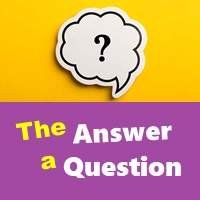
The Answer a Question Activity
The Answer a question is a fun exercise to promote and build active listening skills and promote critical thinking. Gather your group and announce that you will soon lead them through a brief exercise that will help to sharpen their listening skills.
Form pairs or small groups of 3 or 4 people. Ask one person in each pair or group to volunteer as the first speaker.
Prompt these volunteers to respond to a question you pose, eg What are you most looking forward to today? Allow each speaker 2 to 3 minutes to share with their partner(s.)
Instruct all other members to only listen to the speaker, ie offer no judgement or immediate responses. When the speaker has finished sharing, invite the listeners to respond by following this prompts:
- Paraphrase – Restate the same information you just heard, using different words to reflect what the speaker said in summary form, eg “What I heard you say was [ … ]”
- Clarify – Invite the speaker to explain some aspect of what they said, eg “Can you say more about [ … ]?”
- Reflect – Relay what was said back to the speaker to show that you understand how he/she feels about something, eg “It seems to me that you felt confused and worried when [ … ] happened.”
- Ask Questions – Where appropriate, ask questions to encourage the speaker to elaborate on their thoughts and feelings. Avoid jumping to conclusions about what the other person means.
- Express Empathy – If the other person voices their feelings, strive to validate these feelings rather than questioning or deflecting them. For example, if the speaker expresses frustration, try to consider why he or she feels that way, regardless of whether you think that feeling is justified or whether you would feel that way yourself if you were in their position. This could sound like “I can sense that you’re feeling frustrated…” and “I can understand how that situation could cause you frustration…”
- Summarise – Identify, connect, and integrate key ideas and feelings in what the speaker said, eg “Let me summarise what I’ve heard so far…”
Allow several minutes for listener responses to be shared.
When ready, repeat this process with a new speaker responding to a new question, eg What is one of your favourite memories?
Moment of Reflection
- What are some things we need to keep in mind to make sure we are actively listening?
- How do we actively listen to someone? What does that mean?
- What was most difficult about this exercise?
- What did you like most about this activity?
- Was there something you heard that, when repeated back to the speaker, needed to be corrected? What’s an example?
- Did you discover something new about listening?
- In what real-life situations have you been an active listener?
- When are good times in our life to have an active listener with us?
- Where do you think this skill would be useful in your life?
The topics of this publication: interactions, active listening, critical thinking


